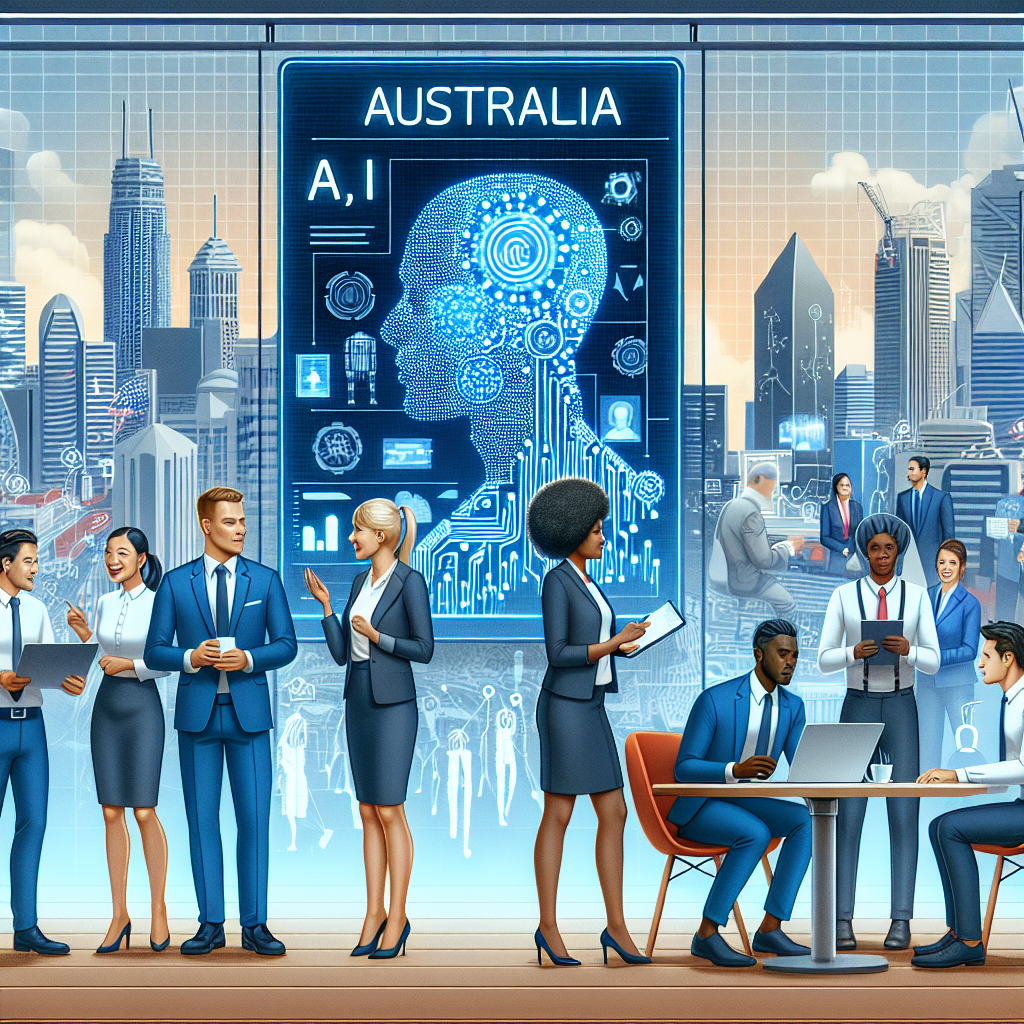Overcoming Australia's AI Talent Crunch
Australia's Expanding AI Industry Faces a Critical Talent Shortfall
Australia's artificial intelligence sector is experiencing rapid growth, yet it is increasingly hampered by a significant shortage of skilled professionals. Since 2019, the demand for AI expertise has expanded annually by 21%, greatly outstripping the number of qualified candidates. Forecasts for 2027 suggest a potential gap of up to 60,000 AI specialists, with only about 84,000 ready to fill roles against a requirement of 146,000. Nearly half (44%) of business executives now view the scarcity of talent as the major barrier to adopting AI innovations.
Key Hiring Challenges
Australian employers face several obstacles as they attempt to recruit AI talent. The mismatch between the speed of industry growth and the available skill set creates a challenging environment:
| Challenge | Description | Impact |
|---|---|---|
| Skill and Knowledge Gaps | Many candidates lack the specialized expertise and hands-on experience in areas such as machine learning and data ethics. | 44% of executives consider this their top concern, leading to delays and increased training costs. |
| Global Competition | Australian firms compete with international tech giants that offer higher salaries and more flexible remote positions. | This leads to salary inflation and a talent drain to global markets. |
| Educational Shortcomings | There is a misalignment between university curricula and the evolving needs of the AI industry. | Consequently, fewer graduates are entering the workforce with the necessary, job-ready AI skills. |
| Immigration Barriers | Complicated procedures deter international experts from entering the market. | This slows down the influx of skilled professionals despite Australia’s reliance on migration. |
| Bias in Recruitment Technology | AI-driven hiring systems sometimes introduce discrimination or lack transparency. | This results in legal risks and lowered confidence among applicants. |
Strategies to Bridge the Talent Gap
Addressing the skills shortage will require a comprehensive approach:
- Upskilling and Reskilling: Invest in training current employees through collaborations between academic institutions and industry partners.
- Revamping Education: Align educational programs with industry needs by incorporating practical projects, updated curricula, and AI ethics.
- Policy Reform: Increase funding for AI education and simplify the visa process for skilled migrants.
- Industry Collaboration: Share resources and consider outsourcing to manage immediate talent needs.
- Leveraging AI Augmentation: Use AI tools to enhance productivity, helping human talent to focus on more complex tasks.
Innovative Recruitment Approaches
Companies are now exploring creative methods to widen their recruitment reach:
- AI-Powered Candidate Sourcing: Utilize AI to discover skilled candidates from unconventional backgrounds and reduce screening time by up to 70%.
- Global Talent Pools: Embrace remote work to tap into international expertise.
- Diversifying Recruitment: Increase opportunities for underrepresented groups, including women, Indigenous Australians, and career transitioners.
- Building Talent Networks: Develop comprehensive candidate databases through alumni associations, events, and predictive analytics.
- Hybrid Hiring Models: Combine the efficiency of AI-driven processes with human judgment to ensure ethical and inclusive hiring practices.
Conclusion
The looming AI talent crunch represents not only a challenge but also an opportunity to innovate the way Australia's workforce is cultivated and managed. By rethinking recruitment, education, and policy, the nation can transform this potential shortfall into a catalyst for widespread technological and economic advancement.
Related posts
-
Career Success in Australia: Navigating the AI-Powered Job Market
Achieve Career Success in Australia with AI-Driven Job StrategiesIn today’s dynamic job market across Australia, standing out is more crucial than ever. Drawing inspiration from insights by Michael Leembruggen, here are some key approaches to refining your resume and positioning yourself for success.Top Resume Optimization Strategies for Australian ProfessionalsATS-Friendly Formatting:Stick...
-
AI in Australia: Money, Market Grabs, and the Road Ahead
AI Sector Update: Investment, Innovation, and Market Dynamics This month’s headlines in the AI domain are dominated by two intersecting themes: significant capital flows and competitive market maneuvers. Robust Funding and Strategic Investments On the financial front, the investment landscape in AI continues to gain momentum. Firmus recently raised an...
-
Landing Your Dream Job in Australia: Insider Strategies for 2024
Breaking into the competitive Australian job market requires more than just a well-crafted resume — it demands a strategic approach tailored to local expectations and industry trends. Based on valuable insights shared on LinkedIn, here are some expert tips to elevate your career prospects:Optimize Your Resume for Aussie EmployersCustomize your...
candidates
consultants
service
you
Ready to transform your workforce with top talent?
We start with a thorough discussion of your business needs to ensure our search is perfectly tailored.
Each recruitment strategy is crafted to find the right fit for your specific requirements.
Our review ensures your resume meets professional and industry standards.
We don’t just find candidates; we ensure they are perfectly aligned with your expectations and business culture, supporting seamless integration and long-term success.


